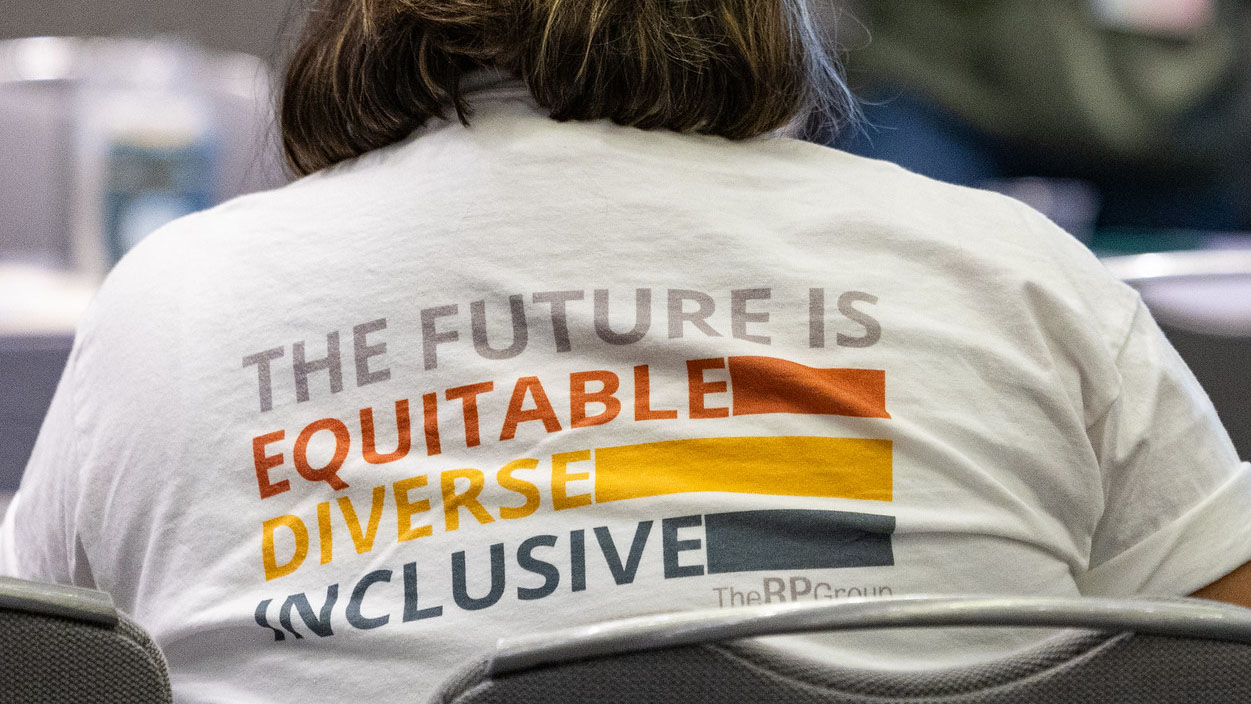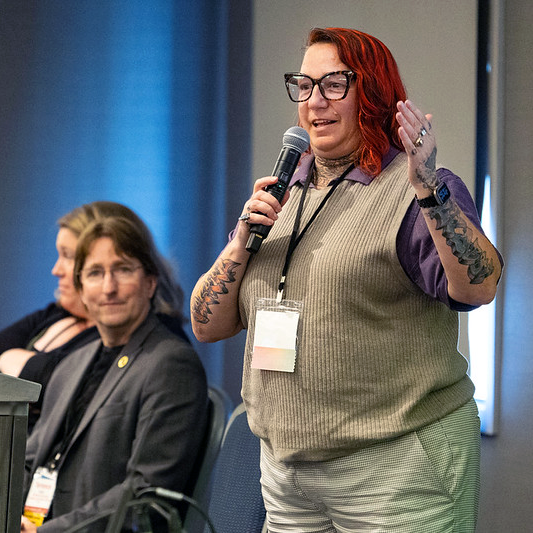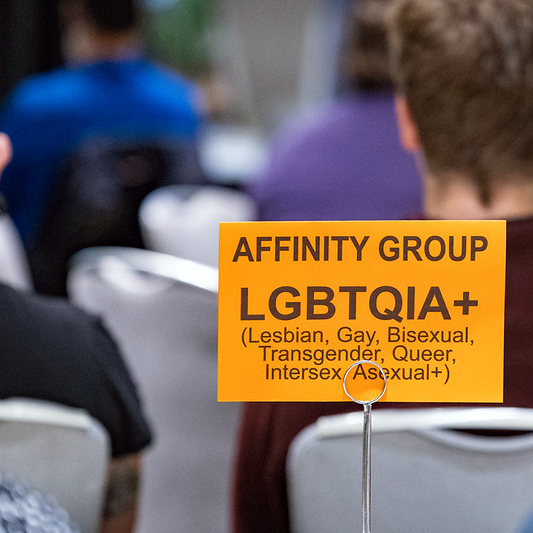Land & Labor Acknowledgments
Our land and labor acknowledgments aim to increase understanding and recognize the lasting impacts of colonialism, enslavement, and exploitation. We honor the original inhabitants of this land and the unpaid labor of people of color, whose contributions continue to shape our society.
This commitment reflects our ongoing efforts to educate ourselves and the broader community on historical and contemporary issues to better inform our equity-focused efforts. Learn more about our statements and process below.
We at The RP Group commit to:
-
Support Native American and other students of color through research and professional development designed to identify and address their needs and
-
Support and encourage our Board and staff in learning about the history of Native Americans and other peoples of color in California and this country and how it affects us today.
Land Acknowledgment Statement
The RP Group acknowledges that in serving community colleges across California, we operate on the unceded land of over 200 tribal nations. We honor California’s first peoples for their resilience, strength, and continued contributions, particularly in education. Indigenous people are not relics of the past—they are here today, actively sharing their expertise and making significant contributions.
At our events, we will share information about the past, present, and future of the tribes that have historically and still live on the land where the event is taking place (for our in-person events) and the land where the presenters are located (for our virtual events).
Learn how we customize this statement at our events.

Labor Acknowledgment Statement
The RP Group acknowledges the historically institutionalized policies and practices of the United States to exploit human labor along racial caste lines, beginning with enslaved Africans stolen from their homelands as the labor force to build the colonies, and continuing through the legacy of unfair labor practices imposed upon immigrant and migrant people.
These exploitative race-based labor policies and institutional strategies have negatively impacted Indigenous peoples, Chinese immigrants, and migrant workers from Mexico, Central and South America, and the Philippines. In acknowledging our collective debt to their labor and sacrifice, we uplift and celebrate the significant contributions of these communities and their descendants, who continue their legacy of innovation and advancement of racial equity.
At our events, we will share additional information about the history and impact of one of the groups that were exploited for their labor. This information is not meant to be a complete history of their plight or contributions, but to raise awareness and facilitate respect.
Learn how we customize this statement at our events.

Honored Labor Groups
Below, we honor the labor of the following groups:
The wealth and correlating international political and economic influence of the United States was built on race-based exploitive and forced uncompensated labor of African men, women, and children stolen from their homeland and kept under the dehumanizing and barbaric conditions of chattel slavery for more than two centuries. African Americans, the descendants of those enslaved Africans, continued to suffer racial violence and unjust economic, social, and political policies and practices under the segregation laws of Jim Crow that dictated every aspect of African American life, from education to housing, from employment to leisure.
Systems and institutions that were designed to maintain white supremacy were first challenged by Black Americans through regional movements in the South in the late 1940s, which grew into a national Civil Rights Movement in the 1950s and 1960s. While many advances in racial equity have since occurred, we acknowledge that the violence against and dehumanization of African Americans have not been cured, and the reverberations throughout the generations can still be felt and witnessed today. We are indebted to them not only for their labor and unrecognized contributions but also for their incredible sacrifice.
More than 50,000 Chinese immigrants lived in California in the late 1850s and were the primary labor force for the Central Pacific Railroad. The grueling and dangerous work and disregard for worker health and safety necessitated the demand for more laborers, and tens of thousands of Chinese men were brought to the West Coast as a dehumanized workforce. Race-based fear and propaganda against the Chinese culminated in the Chinese Exclusion Act of 1882, which barred Chinese immigration and denied US citizenship to Chinese nationals and was not repealed until 1943.
We recognize and honor the sacrifice and bravery of Chinese people whose labor connected our country in commerce and culture.
Filipino farm workers, known as "manongs," a name that is a term of respect for elderly Filipino men, faced the same systems and policies of racial discrimination and unfair labor practices suffered by Chinese immigrants and Mexican migrants. Recognizing the rising tide of the Civil Rights Movement and the increasing strength of labor unions, Larry Itiong, activist and leader of the Agricultural Workers Organizing Committee in collaboration with the Farm Workers of America, called for a strike against grape growers in Delano, California, and a national boycott of California table grapes. The strike and boycott garnered national attention and support from political figures and labor unions from other industries.
We recognize and celebrate the spirit of resistance of the manongs who bravely stood against the wealth and political power of farm owners to demand better working conditions, and the collaborative efforts to work together across racial groups to achieve the common goals of fair wages and humane working conditions.
In California, Indigenous peoples were first exploited for their labor by Franciscan missionaries in the 18th century and then by European immigrants in the 19th century. Despite entering the union as a free state in 1850, the California legislature legalized Native/Indigenous slavery through brutal systemic policies that outlined various acts that could earn indentured servitude where Natives did not have to be paid and were not free to leave. Native children could be declared an “apprentice” without any involvement of their parents or relatives and forced to apprentice until they were between 25 and 30 years old. These apprenticeship laws were repealed by the Emancipation Proclamation of 1863, although, much like African enslavement, the impact of the legacy continued for decades.
We honor the sacrifice and contributions of the Native peoples and their descendants.
The Bracero Program was a series of agreements between Mexico and the US that allowed millions of Mexicans to come to the US to work short-term, primarily in agriculture, between 1942 and 1964. This controversial program exploited Mexican nationals desperate for work who were willing to take arduous jobs at extremely low wages and subjected them to racial violence and discrimination. Although labor groups such as the National Farm Labor Union and the American Federation of Labor staged successful strikes in the 1950s, attempts to resist the financial and political backing of the Bracero Program did not improve the working conditions for farmworkers.
Joining the tide of the growing Civil Rights Movement, organizations such as the Mexican American Political Association and the Community Service Organization played a significant role in the fight for farmworkers' rights in California. In 1962, activists Cesar Chavez, Dolores Huerta, Gilbert Padilla, and others organized a convention in Fresno, CA to formalize the Farm Workers Association, later known as the United Farm Workers.
We honor and uplift the indomitable spirit of the Mexican people whose toil and labor to this day uphold a multibillion-dollar industry from which they do not profit or benefit. We acknowledge that the history of injustice in labor and human rights for farm workers reverberates today.
The U.S. economy relies on the exploited, often unpaid labor of roughly 800,000 incarcerated individuals, primarily people of color. The 13th Amendment allows "involuntary servitude" as punishment, resulting in labor without minimum wage, safety protections, or union rights. In California, for example, incarcerated firefighters are inmates in minimum-security camps, trained by CAL FIRE (CDCR) to suppress wildfires, do conservation work, and respond to disasters, providing crucial labor while earning low wages (historically ~$1/hour, moving to $7.25/hour in 2025).
We acknowledge that the economy and infrastructure of this state—from fighting wildfires to agriculture—are shaped by and reliant on the exploitation of labor within the carceral system. We recognize the systemic link between the history of slavery and the current prison-industrial complex, acknowledging the forced labor extracted disproportionately from Black, Indigenous, and People of Color that benefits our society.
We affirm that the dignity of work requires freedom from coercion and exploitation.
The RP Group's Land & Labor Acknowledgment Process
The RP Group intends for its land and labor acknowledgments to move beyond delivering a performative statement and instead authentically demonstrate our commitment to better serving Native Americans and other communities of color. These acknowledgments are tailored to each event where they are presented, so we do not simply read the same statement each time.
To customize the acknowledgment at our in-person and virtual events, we recognize the tribes on whose land we occupy, including their past, present, and future, and highlight one of the groups whose labor has been exploited, sharing their history and contributions. Our hope is that each time our land and labor acknowledgments are shared, they are authentic and meaningful.
We also aspire to be purposeful in determining when and where to present our land and labor acknowledgments to avoid it becoming perfunctory or performative. We decided to present our land and labor acknowledgments at our (1) conferences and other in-person events, (2) virtual workshops and webinars with a broad focus on equity or specific to the success of marginalized students, and (3) in-person Board and staff meetings.
The process for presenting our land and labor acknowledgments at in-person events includes the following:
-
Determining whether the particular event meets our criteria above
-
Researching the tribes on whose land we are meeting, to include information on their past, present, and future
-
Researching the correct pronunciation for each tribe and including the phonetic pronunciation in the script
-
Selecting the group to be honored as part of the labor acknowledgment
-
Identifying who will present the acknowledgments at the event
-
Incorporating language at the end of the acknowledgments to help transition to the rest of the program
-
Preparing the script and accompanying slides using pre-populated templates
Since our virtual events are typically shorter in length than our in-person events (60-90 minutes), we take a more focused approach to the land and labor acknowledgments to ensure that we still pay respect to the groups in the acknowledgments while recognizing that we have limited time in the space. To that end, our process for presenting our land and labor acknowledgments at virtual events includes the following:
-
Determining whether the particular event meets our criteria above
-
Identifying who will present the acknowledgments at the event
-
Identifying the tribes indigenous to where the presenter resides
-
Researching the correct pronunciation for each tribe and including the phonetic pronunciation in the script
-
Preparing the script and accompanying slides using pre-populated templates
Below, you will find more specifics about how the land and labor acknowledgments are customized.
For in-person events, research the tribes indigenous to the event location to not only share their history but also their current experiences, contributions, challenges, and/or successes.
For virtual events, identify the tribes indigenous to the presenter's location.
For in-person events, we share additional information about the history and impact of one of the groups that were exploited for their labor:
-
African Americans
-
Chinese Americans
-
Filipino Americans
-
Indigenous/Native Americans
-
Mexican Americans
- Incarcerated Labor
For each honored group, we have prepared brief descriptions that are not meant to be a complete history of their plight or contributions, but instead to raise awareness and foster respect. The selection of the honored group is up to the presenters; however, we ask them to consult the schedule below to determine whether a particular group’s heritage month coincides with the event's timing.
|
Month |
Celebration |
Honored Group |
|---|---|---|
|
February |
Black History |
Black/African American |
|
May |
AAPI Heritage |
Chinese or Filipino |
|
September/October |
Hispanic Heritage |
Mexican American |
|
November |
Native American Heritage |
Native American |
For virtual events, we read the labor acknowledgment that lists all the honored groups.


